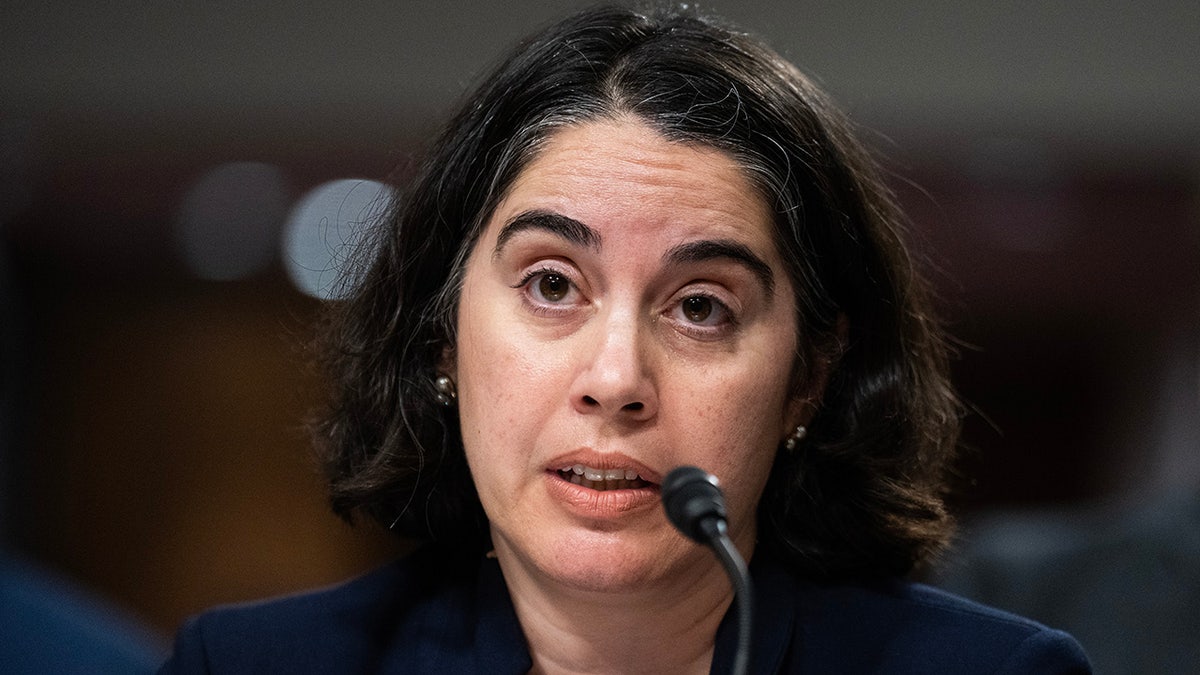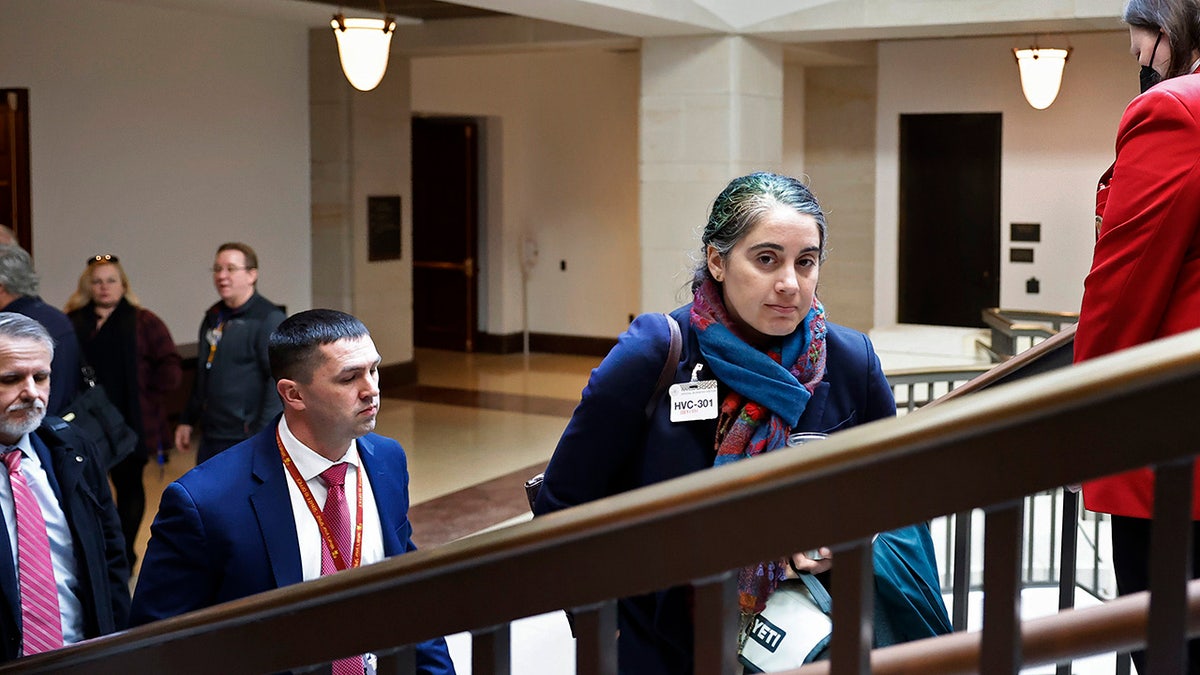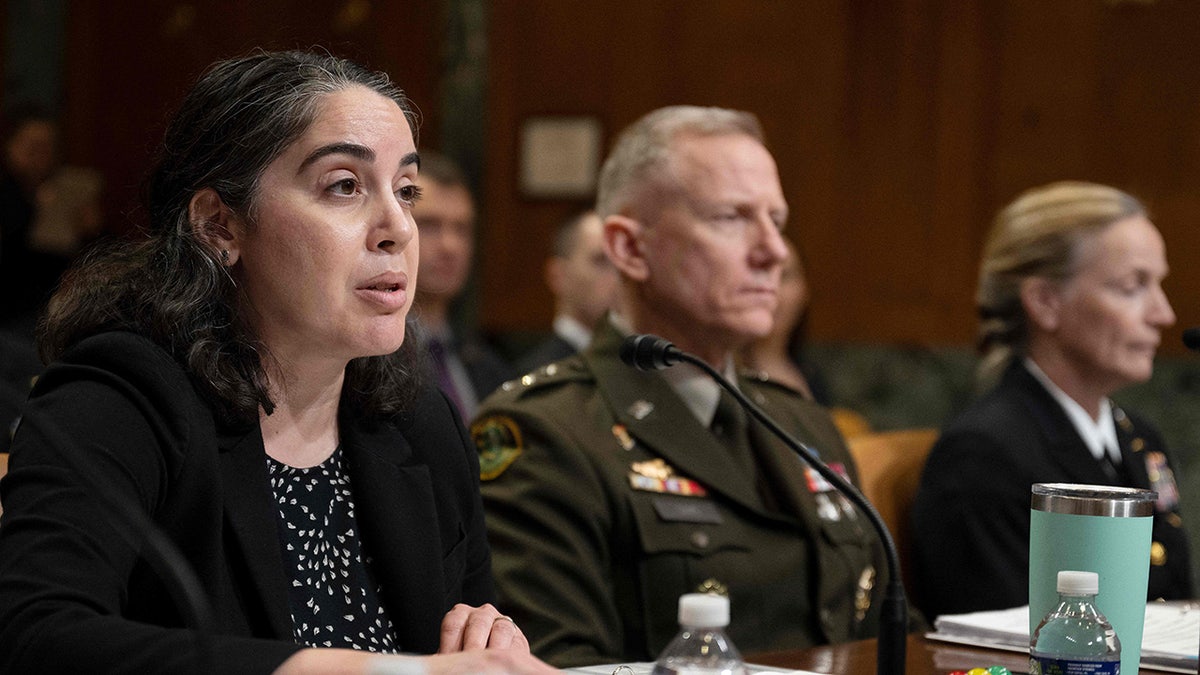President Biden’s nominee for second-highest civilian position in the U.S. Air Force was grilled by Congress on Tuesday regarding the Department of Defense’s selling off of border wall parts, as well as the handling of the Chinese spy balloon, among other issues impacting national security.
Melissa Dalton, who has served as the Pentagon’s Assistant Secretary of Defense for Homeland Defense and Hemispheric Affairs since 2022, appeared before the Senate Committee on Armed Services on Tuesday as she’s being considered for a second time for the role of Under Secretary of the Air Force. Biden nominated her for the Air Force’s No. 2 civilian role in September, but because the Senate didn’t act before the end of the year, the White House renominated Dalton this month.
In his opening statement, Ranking Member Sen. Roger Wicker, R-Miss., raised concern that Dalton “has virtually no experience with the Air Force.”
“Ms. Dalton, the Air Force and Space Force both possess insufficient capacity and capability to meet their growing mission sets. This is the case even as we march toward a state of maximum vulnerability in the Pacific. The last confirmed appointee to the post that Ms. Dalton has been appointed for was not focused on this challenge. She created division in our military instead of prioritizing readiness and modernization,” he said. “If Ms. Dalton is confirmed, I hope that she will not do the same. Regrettably, her performance in her current position gives me pause.”
While Dalton has been at her post, Wicker charged, the “Department of Defense was caught flat-footed as a Chinese surveillance balloon traversed the continental United States and flew over military sites,” and “when Congress sought more information, she, along with others at the Department, evaded Constitutionally-authorized oversight.”
Wicker also raised concern over Dalton’s handling of the Pentagon’s responsibilities at the southwestern border.
“At one point, the Department of Defense was spending $130,000 every single day to store, instead of use, border wall construction materials,” he said. “They were already manufactured, they were ready, and yet we were spending $130,000 to store them. Meanwhile, illegal migration broke records. Later, we found out that the Department of Defense had initiated a process in which these panels would be auctioned for pennies on the dollar — a clear effort to circumvent emerging Congressional intent as the FINISH IT Act was being added to the NDAA. That act was added to the NDAA; it is now the law of the land.”

Melissa G. Dalton, nominee to be under secretary of the Air Force, testifies during her Senate Armed Services Committee confirmation hearing on Jan. 23, 2024. (Tom Williams/CQ-Roll Call, Inc via Getty Images)
Specifically, Wicker took issue with Dalton failing to deliver the Homeland Defense Planning Guidance until the end of 2023 — over a year after the release of the National Defense Strategy.
“This track record casts a shadow on this nomination,” he said.
Sen. Mike Rounds, R-S.D., was also among the Republicans to challenge Dalton about the border, as well as the Chinese spy balloon, which entered U.S. airspace over Alaska, crossed through Canada and then over the continental United States, reportedly gathering key intelligence about U.S. military sites, before it was shot down off the coast of South Carolina.
“This was under your watch. Were you in the direct chain of command in regards to the decision not to shoot the balloon down until after it had left American airspace?” Rounds demanded.
Dalton admitted she was one of the officials advising Austin, adding that “the best military advice to not shoot down over U.S. territory came from our U.S. senior military officials.”

Assistant Secretary of Defense Melissa Dalton arrives for a closed-door, classified briefing for senators at the U.S. Capitol on Feb. 14, 2023 in Washington, DC, after the U.S. military shot down a Chinese surveillance balloon. (Chip Somodevilla/Getty Images)
Noting that at the time Dalton’s nomination to hold her current role passed the same committee in 2022, she was “not controversial,” Rounds said that since then, “two items have happened that now call into question that confidence.”
Regarding the spy balloon, Rounds warned, “This is an area you will be challenged on this particular one because it’s a question of judgment and recommendations being made. I think that between now and the time that a vote is held on your nomination, I think you’ve got some work to do to regain the confidence of a lot of the members on this committee.”
Sen. Kevin Cramer, R-N.D., also pressed Dalton on when she first was made aware of the spy balloon.

Assistant Secretary of Defense for Homeland Defense and Hemispheric Affairs, Melissa Dalton, testifies before a Senate Appropriations Committee subcommittee on Defense hearing on the Chinese spy balloon on Feb. 9, 2023. (JIM WATSON/AFP via Getty Images)
Dalton testified she first heard of the balloon on Jan. 27, 2023, the same day as Defense Secretary Lloyd Austin.
“My initial advice was that we absolutely needed to understand what capabilities were on the PRC high altitude balloon. NORAD NORTHCOM was tracking it and characterizing it, but we needed to get to the bottom of what it was doing, what its intentions were,” she said.
Cramer pressed Dalton on why it was not “instinctive” for her to ever initiate an internal review of all the policies and processes, including the siloing of various intelligence agencies, in the aftermath of the incident, adding that it took the Senate Armed Service Committee to do so.
“Did it ever occur to you, ‘Gee, this is something we should maybe dig into a little bit and see where our failings are’?” Cramer posed.
CLICK HERE TO GET THE FOX NEWS APP
After insisting the department had incorporated the “lessons learned” in the development of the homeland defense policy guidance over the last year that was signed by Austin in December, Dalton was again grilled on what she would have done differently in the event of the crisis itself.
“We as a community could have had better national level integration at the local level — what I saw in the early days of the PRC HAB was that we were very well wired for responding to hurricanes, to wildfires, and that is the day-to-day existence for defense supported civil authorities, but it hadn’t been since World War II that we had an incursion over U.S. territory from a foreign adversary, and so getting that national to federal to state and local integration happened, but I think in real time we could have been more expeditious about it, and we will do so going forward,” she said.
“It’s OK to have been wrong,” Cramer told Dalton. “A correction is what we’re looking for.”